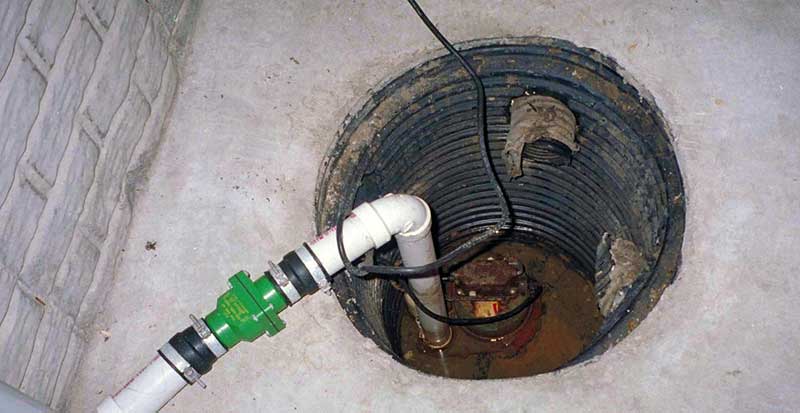For people who live in areas where temperatures in the winter can plummet, like most of Canada, extra care needs to be taken to ensure that certain appliances are looked after. Water pipes, tanks, discharge lines, and sump pumps are susceptible to freezing and this can cause a plethora of problems.
Sump pumps are usually located in or near the basement of a home and for those with one, you should make an effort to avoid a frozen sump pump. There are a few things which you can do to help, so here are a few tips to avoid a frozen sump pump.
Keep Water Running
Water freezes much quicker when it is still, so try to keep your water running – even at a slow pace during the cold months. Even just a small amount of ice at the bottom of the tank increases the chances of more ice developing, and before you know it you`ll have bigger chunks of ice floating around, meaning that water won’t flow as efficiently and in the end, the whole tank will turn into a huge block of ice.
Keep the Pipes from Cold Air
A lot of the pipes which lead to the sump pump pass through the open air. This can cool the water in the pipes to the extent that it freezes. Try to keep your pipes underground, insulated or covered in hay and a tarp, to prevent icy cold air coming in direct contact with the pipes and a frozen sump pump line and frozen pipes.
Put your Sump Pump at a Slope
One good way of keeping water flowing naturally is to put your sump pump on a slight slope. Gravity will cause the natural movement of the water and help to prevent it from freezing.
Redirect the Water
The motor of your sump pump is forced to work harder as the area around the discharge hose begins to freeze. This can cause the motor to overheat – and eventually stop working. By doing some extra work and redirecting some of the water from around your home with good drainage, you can help to prevent this.
Waste Water Area
By releasing the waste water into an area further away from your home, you are reducing the risks which come with frozen water. You can buy a rigid hose which can be connected to the discharge pipe. This will help reduce the amount of waste water near your home that can potentially cause problems. Try to aim for at least 20 feet away for the best results.
Frozen water can cause a plethora of problems in and around a property. For people living in areas which are cold, particularly in the winter, this is something that you need to think about when designing and building a property, or at least before the winter months set in. By being well prepared in term of design, and in terms of knowing what to do should the worst happen, you can avoid the freezing of your sump pump and ensure that there is no ice-related damage to your property this winter.
These preventative measures will help avoid pipes and sump pump from freezing, however, accidents do happen. For those of you that are reading this article after the damage has been done, contact us today. Our team of Hamilton Plumbers welcome every plumbing service, big or small, and look forward to exceeding your expectations!

